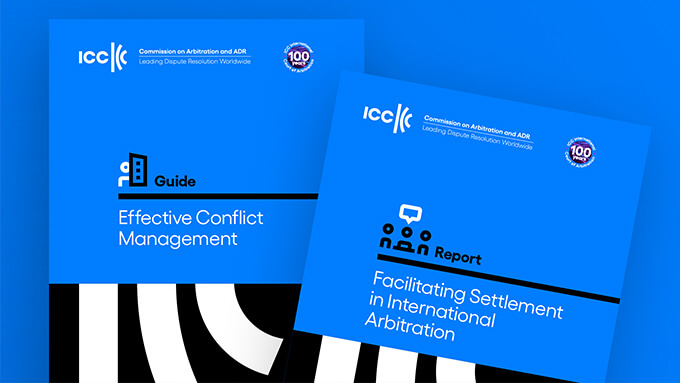Complex Arbitrations: An Overall View of the ICC Rules - I
Introduction
Complex arbitrations are one of the most complicated issues in the arena of international arbitration. The need to resolve complex disputes that arise out of commercial transactions with multiple contracts and multiple parties, on the one hand, and the consensual nature of arbitration agreements, on the other hand, raise several procedural and jurisdictional problems.
One of the topics of the ICC Young Arbitrators’ Forum’s event that was held in Istanbul on 21 March 2019 focused on complex arbitrations[1]. This article series summarize the discussions that took place during that event.
The Reasons Underlying Adoption of the ICC Rules on Complex Arbitrations
In 2012, the International Chamber of Commerce (“ICC”) updated its arbitration rules (“ICC Rules”) to regulate complex arbitrations. The rules adopted in 2017 preserved the perspective that had been adopted in 2012.
Prior to entry into force of the 2012 ICC Rules, the ICC International Court of Arbitration (“Court”) already had extensive and established practices on these issues. However, these issues were dealt with using the broad interpretation of arbitration agreements, particularly with extensions of arbitration agreements to non-signatories, using the Court’s discretion on prima facie assessments as to jurisdiction. The 2012 ICC Rules codified the existing practices of the Court under the 1998 ICC Rules. These rules brought predictability to the arbitration community, and also provided the Court, the arbitral tribunals, and the parties, with a procedural framework.
The main reason for these complex arbitrations provisions is the rise in the amount of cases extending beyond the classic bipolar model of arbitration. This is a natural consequence of rapidly increasing complex transactions in which multiple parties are involved, and the parties to transactions concluding more than one contract. In such relations, the outcome of these types of arbitrations may affect third parties. Also, there may be direct claims, counterclaims, cross claims, as well as recourse claims between the parties.
According to the 2017 statistics of the ICC[2], greater than one-third (37%) of their cases involved multiple parties. Out of these multiparty cases, 13% were comprised of more than five parties; whereas, this rate was 3% for cases involving more than ten parties. The most common configuration in multiparty cases was one claimant versus several respondents (54%), with one case involving as many as 36 respondents.
The Structure of the ICC Rules Related to Complex Arbitrations
The ICC Rules cover complex arbitrations that fall into the provisions as set forth, below:
- Article 7 as to the joinder of additional parties;
- Article 8 as to the claims between multiple parties;
- Article 9 as to arbitrations that are based on multiple contracts; and
- Article 10 concerning the consolidation of arbitrations.
Articles 7 and 8 may be referred to as the basis for multi-party arbitrations; whereas, Article 9 may be classified as the basis of multi-contract arbitrations. Article 10 covers both of these matters.
The ICC Rules’ provisions on complex arbitrations make clear reference to Article 6 of the ICC Rules that regulate the effect of arbitration agreements. Although the ICC Rules regulate provisions on “multi-party arbitrations” and “arbitration with multiple contracts,” the alternative dispute resolution nature of arbitrations, based on the consent of the parties, should not be forgotten. For this reason, when the rules of complex arbitrations are examined (namely Articles 7-10), Article 6 and its subparagraphs 3 to 7, should always be taken into consideration, as well.
Under the provisions of complex arbitrations, Article 10, which regulates the consolidation of arbitrations, stands alone by not making any reference to Article 6(3)-6(7). This is conceivable as Article 10 covers the period after the prima facie assessment as to jurisdiction is made by the Court, and the subject matter concerning consolidations concerns arbitrations that are pending.
In addition to Articles 7-10 and 6(3)-(7) of the ICC Rules, Article 4(3) on Request for Arbitration, Article 5(5) on Answer to the Request for Arbitration, Article 12 on Appointment of Arbitrators, and Article 36 on Advance on Costs, are also influenced by the provisions on complex arbitrations. However, in this article series, only Articles 7-10 and 6(3)-(7) of the ICC Rules will be examined.
Articles 6(3)-(7) of the ICC Rules
The consensual nature of arbitration as a dispute resolution mechanism is emphasized again via the references to Article 6(3)-6(7) in Articles 7-10. Moreover, these references reiterate two basic principles of arbitration: prima facie assessment of the Court and competence-competence. Article 6(3) and 6(5) set forth that the jurisdictional issues are decided by the Court on a prima facie basis, and will finally be resolved by the arbitral tribunal.
The provisions of Article 6(3)-(7) follow a specific order. Article 6(3) and Article 6(5) regulate the authorities in assessing matters of jurisdiction. This article grants a gatekeeping role to the Secretary General. Unless the Secretary General refers the matter to the Court, jurisdictional issues do not prevent arbitrations from proceeding, and the arbitral tribunal decides, in its sole discretion, either in the final award, or in a separate preliminary award, its findings as to jurisdiction. The Secretary General shall not refer the matter to the Court, unless he/she is unclear as to the prima facie jurisdiction of the arbitral tribunal. With this authority, the Secretary General’s rendering of a positive decision is the first step as to prima facie jurisdiction of the arbitral tribunal. However, the Secretary General is not authorized to render a negative decision with respect to jurisdiction.
Article 6(4) regulates the authority of the Court to decide as to jurisdiction, and to what extent the arbitration shall proceed in cases the matter is referred to the Court. If the Court renders a negative decision, the arbitration shall not proceed, and Articles 6(6)-(7) of the ICC Rules will be applicable; otherwise, the arbitration shall proceed. In such case, the Court’s decision is only administrative and temporary, and any arguable questions as to jurisdiction are to be dealt with by the arbitral tribunal (Article 6(5)). What is remarkable in Article 6(4) is that unlike the 1998 ICC Rules, the Court may decide to allow arbitrations only for some parties and for some claims, rather than declaring a negative jurisdictional decision for all of the parties and claims.
Article 6(4)(i) relates to multi-party arbitrations; whereas, Article 6(4)(ii) sets forth the requirements for multi-contract arbitrations if there are multiple arbitration agreements. It should be underlined that “multiple contracts” and “multiple arbitration agreements” are separate issues and have different legal effects. Article 6(4)(ii) applies only in cases where there are multiple arbitration agreements. If there are multiple contracts but only one arbitration agreement, only Article 9 applies, and the requirements set forth under Article 6(4)(ii) will not be sought.
As a reflection of the competence-competence principle, Article 6(5) states that the arbitral tribunal is the final authority to decide on jurisdictional issues, except in cases where the Court has granted a negative decision that prevents the arbitration from proceeding. As mentioned above, upon the Court’s negative decision as to jurisdiction, the arbitration shall not proceed, the proceedings shall be concluded, and the file shall not be transmitted to the arbitral tribunal.
Article 6(6) and Article 6(7) regulate the stages following the Court’s negative decision. Article 6(6) relates to the parties that are excluded from the arbitration by the Court’s negative decision as to jurisdiction; whereas, Article 6(7) relates to claims excluded by the Court. Pursuant to Article 6(6), where the Court has decided that the arbitration cannot proceed in respect of some or all of them, any party retains the right to ask any court having jurisdiction whether or not, and in respect of which of them, whether there is a binding arbitration agreement. Article 6(7) sets forth that where the Court has decided that the arbitration cannot proceed in respect of any of the claims, such decision shall not prevent a party from reintroducing the same claim at a later date in other proceedings.
Conclusion
In this first article of the article series on complex arbitrations, the structure of the ICC Rules on complex arbitrations is examined. The details of the ICC Rules, and the requirements thereto, will be examined in the upcoming articles.
[1] http://www.erdem-erdem.av.tr/media/news/icc-yaf-event-on-tips-on-arbitrating-under-icc-rules-of-arbitration/
[2] https://iccwbo.org/publication/2017-icc-dispute-resolution-statistics/
All rights of this article are reserved. This article may not be used, reproduced, copied, published, distributed, or otherwise disseminated without quotation or Erdem & Erdem Law Firm's written consent. Any content created without citing the resource or Erdem & Erdem Law Firm’s written consent is regularly tracked, and legal action will be taken in case of violation.
Other Contents

Emergency arbitration addresses the need for interim protection before the arbitral tribunal is constituted in institutional arbitrations. Arbitral institutions establish short timeframes to ensure parties can obtain interim relief quickly. For example, the International Chamber of Commerce (“ICC”) requires that the emergency...

International arbitration remains the preferred mechanism for resolving complex cross-border disputes. Yet despite its advantages—neutrality, enforceability, flexibility—arbitration is frequently criticized for being too slow, too expensive, and too procedurally heavy. Often, parties proceed through hearings and...

For arbitral awards rendered in international commercial arbitration to produce legal effects in foreign jurisdictions, they must be subjected to proceedings for “recognition” and “enforcement.” This process is governed by the New York Convention as well as by the provisions of the Law on Private International Law...

Arbitrability, the determination of whether a specific subject matter can be resolved through arbitration, constitutes a fundamental aspect of arbitration within the scope of international commercial dispute resolution. This concept draws a delicate balance between party autonomy—a fundamental principle of arbitration...

The recognition, enforcement, and annulment of foreign court and arbitral awards in Türkiye are processes in which public policy emerges as one of the most critical criteria for review, both in theory and in practice. The Court of Cassation decisions determine the direction of case law regarding the scope and...

As is well known, the action for annulment of objection is a special type of lawsuit regulated under Article 67 of the Turkish Execution and Bankruptcy Law No. 2004 (“EBL”). The primary objective of this action is to nullify a debtor’s objection to execution proceedings. Despite its procedural function of facilitating...

On 16 December 2024, the London Court of International Arbitration (“LCIA”) released its third batch of challenge decisions covering the period from 22 July 2017 to 31 December 2022. The LCIA has also issued a detailed commentary that identifies key legal themes and analytical trends, offering practitioners...

The International Chamber of Commerce (“ICC”) has published its report on the dispute resolution statistics for 2023 (“Report”) , shedding light on the evolving landscape of international arbitration...

Syndicated loans undoubtedly hold a significant position among global financing models. In 2023 alone, 3,655 syndicated loans were provided to companies in the US, with their total value reaching USD 2.4 trillion...

Preliminary attachment refers to the temporary seizure of a debtor's assets to secure a creditor's claim. While it serves as a vital instrument for safeguarding the rights of creditors, it is subject to specific and stringent conditions under Turkish law to prevent any potential misuse...

One of the most important reasons for parties to choose arbitration is the opportunity to freely choose their arbitrators. This freedom granted to the parties also distinguishes arbitration from proceedings before state courts, where the parties are deprived of the power to determine the judges who will conduct the...

The 6th Civil Chamber of the Court of Cassation ruled on October 12, 2022, that national courts have jurisdiction over objections to provisional measures in international arbitration disputes...

The declaration of intent to resolve disputes through arbitration is the fundamental constituent element of an arbitration agreement. To speak of a valid arbitration agreement, the parties' intention to arbitrate must emerge in a way that leaves no room for dispute...

In the wake of the evolving dynamics of commercial transactions, the Netherlands Arbitration Institute Foundation (NAI) announced new arbitration rules . 2024 NAI Arbitration Rules are in force as of 1 March 2024 and will be applicable on proceedings filed on or after this date...

With the global shift to online activities, domain names play a crucial role in identifying businesses. It is more common than ever for a domain name to be registered that is confusingly similar to a trademark or service mark...

The ICC Commission on Arbitration and ADR (“Commission”) published a new guide and report with the aim to increase awareness on alternative dispute resolution (“ADR”) mechanisms to prevent disputes and strengthen the relationship between all stakeholders.The Guide on Effective Conflict Management...

Mergers and Acquisitions (“M&A”) are restructuring of companies or assets through various types of financial transactions, such as mergers, acquisitions, purchase of assets, or management acquisitions. This Newsletter article covers M&A disputes being solved before arbitral tribunals.

In the context of arbitration practice, the principle of revision au fond means that the courts can not examine the merits of a dispute when reviewing an arbitral award. This principle is most commonly encountered in set aside and enforcement proceedings. An arbitral award is evidence of the parties’ willingness...

Under Turkish law, parties may agree on the settlement of disputes that have arisen or may arise, regarding the rights that they can freely dispose of, by arbitration. However, disputes which are not subject to the will of parties, such as the disputes relating to in rem rights of immovables, bankruptcy law...

On 4 September 2020, a research project “Does a Right to a Physical Hearing Exist in International Arbitration?” was launched by an International Council for Commercial Arbitration (“ICCA”) taskforce. Due to the Covid-19 pandemic, many arbitration hearings were held online. Many institutional rules...

Dubai International Arbitration Center amended its Arbitration Rules on 25 February 2022. The 2022 Arbitration Rules were published on 2 March 2022 and came into effect on 21 March 2022. The Rules will be applied to arbitrations that are filed after 21 March 2022; unless parties agree otherwise...

In the aftermath of the Achmea decision, controversies on intra-EU arbitrations continue. Most recently, the Paris Court of Appeal has annulled two arbitral awards rendered against Poland. Meanwhile, the Higher Regional Court of Berlin has refused to declare that an Irish investor’s ICSID claim...


Under Turkish law, the legal remedy that can be applied against arbitral awards is an annulment action. Law on International Arbitration No. 4686 (“IAL”) finds its application area in arbitration proceedings where Turkey is the place of arbitration...

It is well known that following a decision of the Court of Justice of the European Union, problems arose related to arbitration of intra-EU disputes, and particularly arbitration under the Energy Charter Treaty...

Arbitration in corporate law contains controversial elements in many respects, especially the issue of arbitrability. Even in legal systems where these disputes are considered to be arbitrable, uncertainties remain on whether an arbitration clause can be included in the articles of...





Arbitration has benifited from a great increase in the use of technology which has directly effected the conduct of proceedings. More particularly, with digitalization, the way that we conduct arbitration proceedings has been changed to reflect the current needs of parties, with an aim of increasing time...
































































